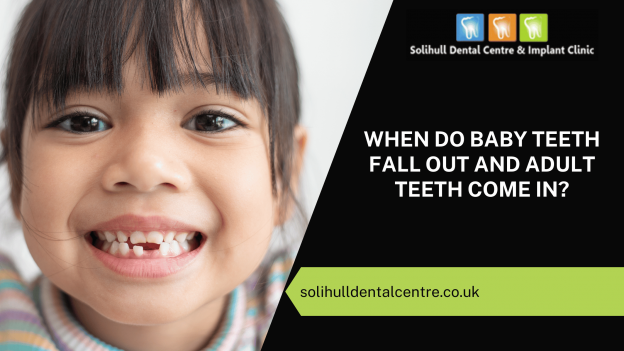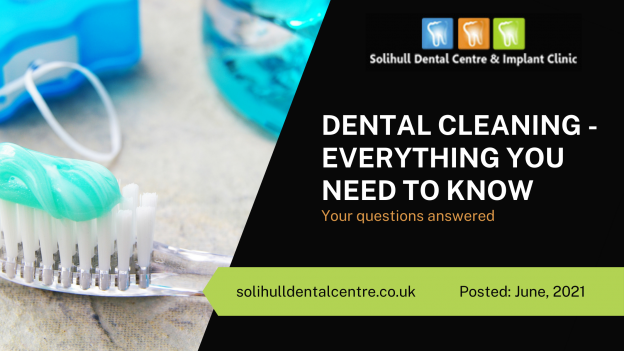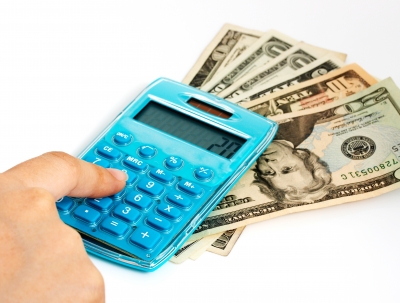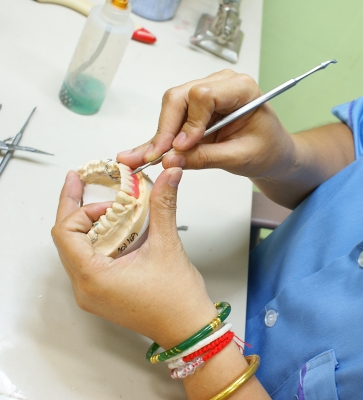If you have just been blessed with a baby, you might be wondering when they will grow their first tooth. The appearance of the first milk tooth is a huge milestone for many parents. Once the first tooth comes in, others start to follow, and in a matter of a few months, your child’s mouth will be full of pearly whites. But have you ever wondered about when baby teeth fall out and adult teeth come in? More importantly, why is it important to keep track of your child’s tooth eruption schedule?
If you are a new parent and you’re looking for answers to these questions, then we have got you covered. Read this blog till the end to learn everything you need to know about baby teeth eruption schedule.
Which Teeth Fall Out?
The first set of teeth your child grows is called the milk teeth, or the primary teeth. These are also called deciduous teeth, implying that they are temporary and will be replaced with their permanent successors. Therefore, humans have two sets of teeth; the primary or the milk teeth, and the permanent or the secondary teeth.
Your child will grow their first milk tooth at the age of 5 months (± 2 months), which are typically the central incisors (front) in the lower jaw. These are followed by the central incisors in the upper jaw. Afterwards, kids typically grow their lateral incisors around 8 – 12 months of age, which are adjacent to the central incisors (1 on each side of the jaw). After the central and incisors, primary first molar teeth typically erupt in the upper jaw (13 – 19 months), followed by lower first molars (14 – 18 months). These are followed by the upper canines (16 – 22 months) and the lower canines (17 – 23 months), and finally, the lower second molars (23 – 31 months), and the upper second molar teeth (25 – 33 months).
At What Age Do Kids’ Teeth Fall Out?
Milk teeth in children typically begin to fall off around the age of 6 – 7 years and continue up to 10 – 12 years. Once a milk tooth is lost, it is replaced by its permanent counterpart. Hence, between the ages of 6 and 12, kids have both milk and permanent teeth. This type of dentition, where both the primary and permanent teeth exist in the mouth is called a mixed dentition.
Do Babies Already Have Adult Teeth Waiting?
This is one of the most frequently asked questions by new parents. The answer to this question is yes. Your child’s permanent teeth are already developed and waiting beneath the milk teeth to erupt when the time comes. For example, once a milk tooth is lost, its permanent counterpart, which is residing below the tooth inside the jaw, begins to erupt and gradually comes into the jaw. In this way, each lost milk tooth is replaced with its permanent successor.
How Many Milk Teeth A Human Has That Will Be Replaced?
Babies have a set of 20 milk teeth in their jaws, 10 in the upper and 10 in the lower jaw. These teeth will ultimately be replaced with the permanent ones. However, the number of permanent teeth is greater than that of milk teeth. Typically, humans have a set of 32 teeth in their mouths (16 in each jaw). This is because there are a few additional teeth in the permanent dentition, namely the first and second premolars (behind the canines and in front of the first molars) and the third molars (the wisdom teeth).
Is It A Problem If Milk Teeth Don’t Fall Out By 7 Years?
Typically, kids start to lose their milk teeth between the ages of 6 and 7 years. However, this shedding pattern is not always followed. Sometimes, milk teeth may begin to fall off even after 7 years of age. So, a delay of about 6 months from the schedule is nothing to be worried about. However, if the milk teeth fail to fall off after this time, the parents should visit their child’s dentist for a detailed clinical examination.
Is It Normal To Still Be Losing Teeth At 12?
It is normal for kids to be losing their milk teeth at the age of 12. According to Healthline, kids often lose their last milk tooth at 12. So, if your child is losing their milk teeth at 12 or 13, it is normal and nothing to be worried about.
Are Your Premolars Supposed To Fall Out?
According to the American Dental Association, premolar teeth erupt during the permanent dentition. These teeth typically appear in the oral cavity between the ages of 10 and 12. Since premolar teeth are permanent, they are not supposed to fall out and they won’t be replaced with another tooth if they are lost. So, if someone loses one of their premolar teeth, the only option to replace them is through an artificial tooth such as an implant-supported prosthesis or a denture.
What Should I Do If My Child Knocks Out A Permanent Tooth?
According to the American Academy of Pediatrics, a knocked-out permanent tooth should be preserved as it can be re-implanted back into the jaw in some cases. Hold the knocked-out tooth by its crown (the chewing surface) and gently clean it with water. Afterwards, try to gently reinsert the tooth into its socket. If that is not possible, preserve the tooth in milk or a tooth-preserving medium and visit your dentist immediately. If no storage medium is available, you can also keep the tooth inside your child’s cheek as saliva is also a good storage medium for the teeth. In most cases, knocked-out teeth can be saved if treatment is sought timely. However, if the tooth cannot be saved, your dentist will replace it with an implant-supported prosthesis
If you wish to know more about the eruption schedule of the primary and permanent teeth, or how to look after your child’s dental health, Solihull Dental Centre and Implant Clinic is your best option if you live in West Midlands. We have the best dentists in town to look after your child’s dental health, making sure that they remain healthy and smiling. So, book an appointment today and let us take care of your baby’s pearly whites.





 Why is dentistry so expensive?
Why is dentistry so expensive?
